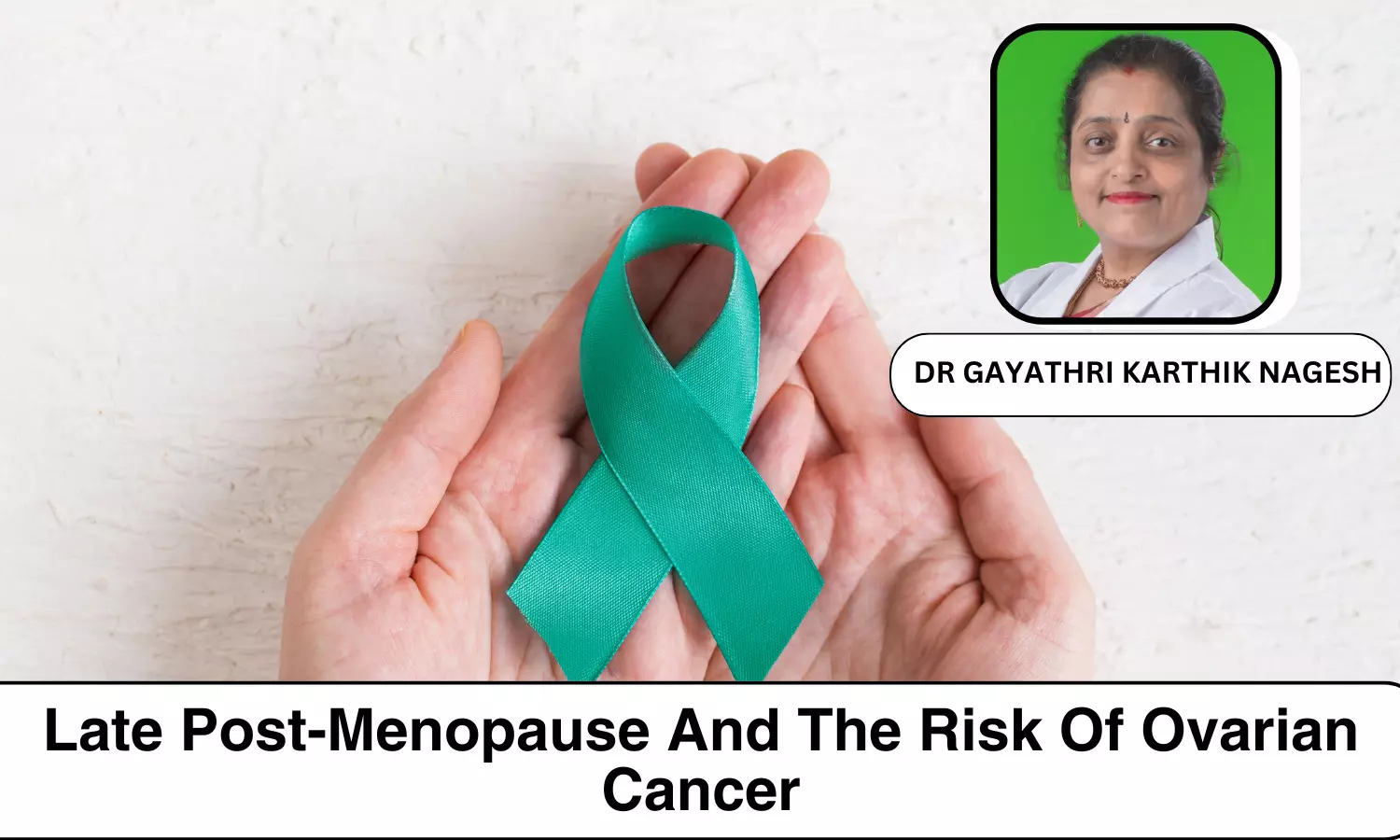How late Post-Menopause can risk you with Ovarian Cancer? - Dr Gayathri Karthik Nagesh

Late menopause can be a significant factor in the development of ovarian cancer, one of the most severe forms of cancer affecting women of older age. Therefore, it is vital for us to understand the connection between late menopause and this fatal illness to avoid the risk and ensure overall health for all.
Ovarian Cancer:
Ovarian cancer originates in the ovaries, the female reproductive glands where eggs are produced. Also known as the "silent killer", ovarian cancer has very few early symptoms, some of which are not even recognizable and as a result, it is often diagnosed at a later stage. By the time symptoms like abdominal pain, bloating, or changes in urinary or bowel habits appear, the cancer has often spread to other areas, complicating treatment and prognosis.
Know How Late Post-Menopause Can Increase the Risk of Ovarian Cancer:
Menopause is a normal part of a woman’s life when menstrual periods stop permanently — marking the end of fertility. It usually occurs in women aged 45-55 years, but some women experience menopause later.
Late menopause is the beginning of menopause that happens after 55 years. According to research, a woman who experiences late menopause has higher chances of ovarian cancer. The underlying reasons for this connection can be complex.
- Increased Hormonal Exposure: Estrogen and progesterone, the two primary menstrual cycle hormones, also have their share in ovarian cancer development. Prolonged exposure to these hormones in women with late menopause can lead to the development of abnormal cells in the ovaries.
- Extended Ovulation Period: Ovulation to at some extent is a traumatic process. Each ovulation cycle in a woman’s reproductive life causes a rupture of an ovarian follicle, which requires healing. The longer the ovulation period, the newer chances for DNA damage and cancerous growth.
- Age and Other Risk Factors: Late menopause often coincides with increased age, which itself is a risk factor for ovarian cancer. Other factors include certain genetic mutations (like BRCA1/BRCA2), obesity, hormone replacement therapy, and family history. All these can contribute to the development of ovarian cancer.
How to prevent this risk?
The first line of defence against late menopause's increased risk of ovarian cancer is to undergo regular screenings and monitoring. As with breast or cervical cancer, there isn't yet a commonly used screening test for ovarian cancer.
For women who have a higher risk of ovarian cancer, however, a gynaecologist may recommend regular screenings and testing such as pelvic exams, transvaginal ultrasounds, and CA-125 blood tests.
It is important for women with a family history of ovarian cancer or other cancers (such as breast cancer) to consider genetic counselling and testing to identify the risk. Genetic testing for BRCA1/BRCA2 mutations or other markers can help them guide their decision-making.
Adopting a healthy lifestyle is always a good idea, since it may help lower these women's risk of developing ovarian cancer. These include of keeping a healthy weight, getting regular exercise, eating a balanced diet, abstaining from tobacco use, and consuming in moderation from alcohol.
Preventive surgery, such as a salpingo-oophorectomy, which removes the fallopian tubes and ovaries, can be performed on women who have a high chance of developing ovarian cancer. It is advised that women who have high risk factors, such as BRCA mutations, have preventive surgery.
Since, hormone replacement therapy (HRT) is linked to increasing ovarian cancer risk, women considering HRT should discuss the risks and benefits with their gynaecologist, weighing potential relief from menopausal symptoms against the increased risk of cancer.
To sum up, by being aware of the connection between ovarian cancer and late menopause, women can take proactive measures to lower their risk and make informed decisions. It's also critical to understand about preventative measures against the risk of ovarian cancer and to seek the advice of healthcare specialists on an individual basis.
Disclaimer: The views expressed in this article are of the author and not of Health Dialogues. The Editorial/Content team of Health Dialogues has not contributed to the writing/editing/packaging of this article.


